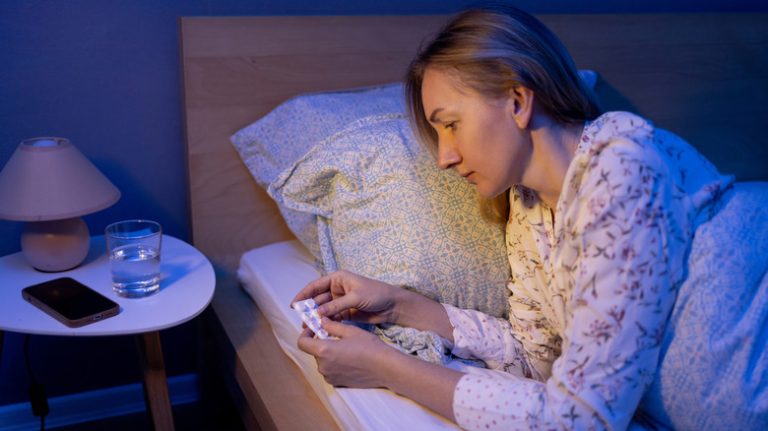
Perhaps you’ve already mastered the essentials of good sleep hygiene. You avoid eating a few hours before bedtime and practice light yoga to calm your mind. You keep your bedroom dark and cool, and you avoid screens for at least an hour before going to bed. These habits help create an environment for restful, restorative sleep, aiding in body repair and supporting long-term health.
While insufficient sleep can raise your risk of dementia, your sleeping position might also contribute to this risk. Sleeping on your back may help prevent facial wrinkles, but it might not be the best choice for supporting cognitive health.
There are a couple of reasons for this. Firstly, lying on your back can cause the muscles in your airway to relax, potentially restricting breathing, especially in individuals with obstructive sleep apnea (according to Houston Methodist). Secondly, this position might make it more challenging for your brain to efficiently clear out waste products and toxins during the night—a crucial process believed to help lower the risk of neurodegenerative diseases such as dementia.
Sleeping on your back could affect your brain health

More than half of people with sleep apnea tend to sleep on their backs, according to a 2014 article in Sleep Medicine Reviews. Sleep apnea can limit lung volume and cause individuals to stop breathing intermittently, disrupting sleep and reducing oxygen supply to the brain (as per Medical News Today). A 2022 meta-analysis in the Journal of Sleep Research found that individuals with sleep apnea face a 28% higher risk of Alzheimer’s and a 54% higher risk of Parkinson’s disease.
Alzheimer’s disease is associated with the accumulation of harmful proteins. During sleep, the glymphatic system works to remove this waste, but disrupted sleep can interfere with this process. A 2019 study in the Journal of Alzheimer’s Disease examined the sleep patterns of individuals with neurodegenerative diseases like dementia. These individuals spent more time sleeping on their backs compared to a similar healthy population. Researchers concluded that sleeping on your back might make your glymphatic system less effective compared to side sleeping.
Sleeping on your back doesn’t directly cause dementia

It’s crucial to understand that researchers have not found that sleeping on your back or having sleep apnea directly causes dementia, but they are related. According to the Mayo Clinic, sleep apnea can lead to high blood pressure, type 2 diabetes, and metabolic syndrome. These conditions can, in turn, increase the risk of developing dementia. The Cleveland Clinic estimates that up to 90% of people with sleep apnea are unaware of their condition. If you frequently wake up gasping for air, it’s advisable to consult a doctor. People with sleep apnea may also experience headaches or dry mouth upon waking, and it may make concentrating or staying awake during the day difficult.
If you have back issues that necessitate sleeping on your back, there are still ways to support your brain’s ability to clear out waste during sleep, as noted in a 2020 review in Brain Sciences. Consuming more omega-3-rich foods can reduce brain inflammation and assist in removing harmful proteins. Intermittent fasting can lead to bodily changes that might reduce brain buildup and protect brain cells. Conversely, moderate to heavy alcohol use can impair the brain’s waste-clearing system, so cutting back on alcohol could lower dementia risk. Regular physical activity enhances blood flow and supports the brain’s natural cleansing processes.




